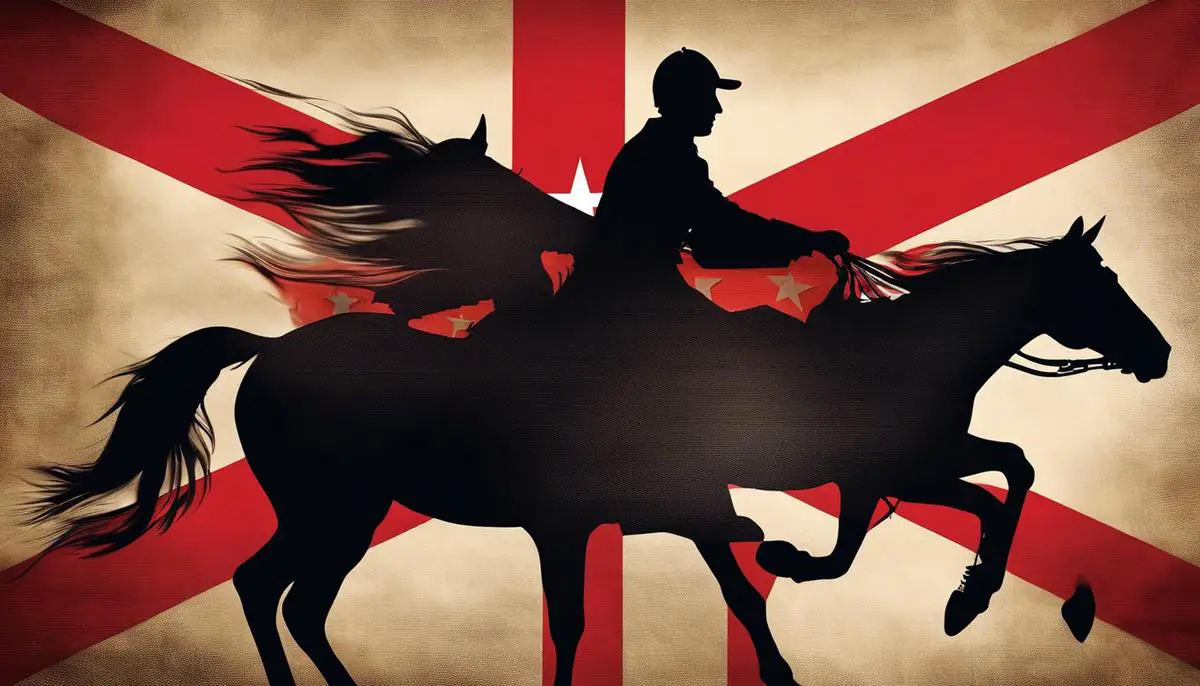Nestled within the picturesque landscape of Switzerland, a tradition of equestrian brilliance flourishes, combining historical significance with dedicated expertise. A distinct blend of majestic Swiss horses, a remarkable training curriculum, exemplary riding schools, and success tales serve as the pillars of this unique equestrian narrative. Delving into the rich tapestry of Switzerland’s horse riding heritage, we will uncover the complexities behind these institutions that have made an indelible impact on the world of equine love and mastery. Guiding us on this journey are the charming rural Swiss landscapes, home to some of the most prestigious equestrian schools globally, their legacy traced back to centuries of unsurpassed equestrian education and practice.
Table of Contents (Horspedia)
Understanding the Swiss Equestrian Tradition
The Swiss and Their Equestrian Tradition: A Deep Seated Bond
Could it be the spine-chilling Alpine heights or the breathtaking panoramic sights that define the heart of Swiss culture? Perhaps, but there’s another yet unignored element, a sturdy, soulful component of Swiss culture that has carved a niche in Switzerland’s heart for centuries. Enter the equestrian tradition. The importance of equestrian tradition in Swiss culture is undeniable, marked by a profound respect for horses and a treasured inheritance of skills and wisdom.
Horses have been integral to Switzerland’s rural life, agriculture, and transportation since ancient times. Did the horse and carriage vanished into oblivion when vehicles took over? Absolutely not. The love for horses and the joy of horse-riding remain unabated, transforming into an esteemed tradition over time.
Equestrian activities aren’t just hobbies or sports here; they are an inherited legacy. To simply put, the riders’ phenomenal skills are not down to sheer luck; instead, they’re hard-earned, carefully cultivated over generations. Switzerland teems with equestrian clubs, training schools, and competitions that attract enthusiasts from near and far. The level of dedication towards horse-riding here is awe-inspiring. It underpins the importance the Swiss attach to this treasured tradition.
Moreover, the equestrian tradition is closely linked to Swiss history, folklore, and life. It’s reflected vivaciously in festivals like the ‘Marché-Concours’, the nation’s largest horse show that has been stealing hearts for over a century. This festival is a testament to the Swiss endearment for horses, bearing witness to the unbreakable bond between Swiss society and the equestrian tradition.
Furthermore, the Swiss equestrian tradition has made an indelible mark at the global platform. Swiss riders have stamped their equestrian dexterity at several international championships, proudly hoisting the Swiss flag on numerous podiums.
For Swiss, horse-riding is a symbol of elegance, discipline, and freedom. It’s a form of communication between man and beast, where mutual trust goes deeper than spoken words. It’s an art, a passion, a tradition that has permeated Swiss culture, from the scenic villages nestled in the stunning Alps to the bustling urban metropolises.
Understanding this touchstone of Swiss culture is vital. It’s not just about mastering the reins or saddling up right. It’s about a reverence for horses, cherishing centuries-old traditions and fostering unity. So, the next time Switzerland’s pristine beauty sweeps you off your feet, remember there’s a rhythmic gallop that echoes across this land, an endearing equestrian tradition that’s just as beautifully Swiss.
The Swiss Equestrian School Curriculum
As we delve into the heart of the topic, which is the curriculum at a typical Swiss riding school, it’s important to note that the Swiss approach to horse-riding is infused with meticulousness, precision, and respect for tradition, similar to other aspects of Swiss life and culture. Rooted in this philosophy, the curriculum of a standard Swiss riding school contains a mixture of theoretical knowledge and practical riding techniques, designed to foster an all-around equestrian.
Theoretical training is an integral part of the curriculum and it provides students with an in-depth understanding of horse anatomy, horse care, and diet, stable management, and equestrian safety. The Swiss believe that a well-informed rider is better equipped to form a bond with the horse, ensuring a mutual understanding and respect that is crucial in enhancing the riding experience.
In this context, horse-riding etiquette and rules play a key role as well, emphasizing the iconic Swiss virtues of discipline and respect. Students are taught the right way to approach a horse, how to groom and saddle them, and the appropriate conduct while riding, ensuring both the rider’s safety and the horse’s comfort.
Practical lessons, on the other hand, comprise a significant chunk of the curriculum. Beginning with basic horsemanship, students gradually learn different riding styles – including dressage, jumping, and cross-country, depending on the school’s approach and the student’s interest. These schools also value versatility and functionality in riding, training their students to be adept in various forms of riding rather than being experts in just one.
Moreover, Swiss riding schools are known for adopting a systematic progression approach when it comes to teaching riding techniques. The curriculum is carefully structured, ensuring that students only graduate to the next level when they are proficient in the current one. This systemic approach takes individual learning abilities into account, allowing for a personalized training experience.
In addition, many schools emphasize the development of a healthy rider-horse relationship. This is achieved through individual projects that encourage students to spend more time with their assigned horses and understand their personalities. It’s not unusual for students to participate in practical sessions of feeding, grooming, and horse care, fostering a heartwarming bond between the two.
Furthermore, Swiss riding schools also offer programs focusing on competitive riding. These are rigorous training sessions designed to equip riders with the skills necessary to compete in national and international equestrian events. Here, horse and rider are trained to function as a cohesive unit, moving in unison and complementing each other’s strengths and weaknesses.
Lastly, and perhaps most importantly, the Swiss riding curriculum is underpinned by an overarching principle of respect for nature and the environment. This respect is imbibed in the students, not just in thought but also through practice, whether it’s through responsible riding in outdoor trails or understanding the environment’s symbiotic relationship with equestrian life.
In a nutshell, a typical Swiss riding school curriculum prioritizes an approach that is balanced, holistic, and grounded in deeply entrenched equestrian traditions and principles, cultivating well-rounded riders who love and respect their horses just as much as the sport itself. Such insight into the curriculum shines a light on why Swiss riders are a name to recon with in the world of equestrianism.
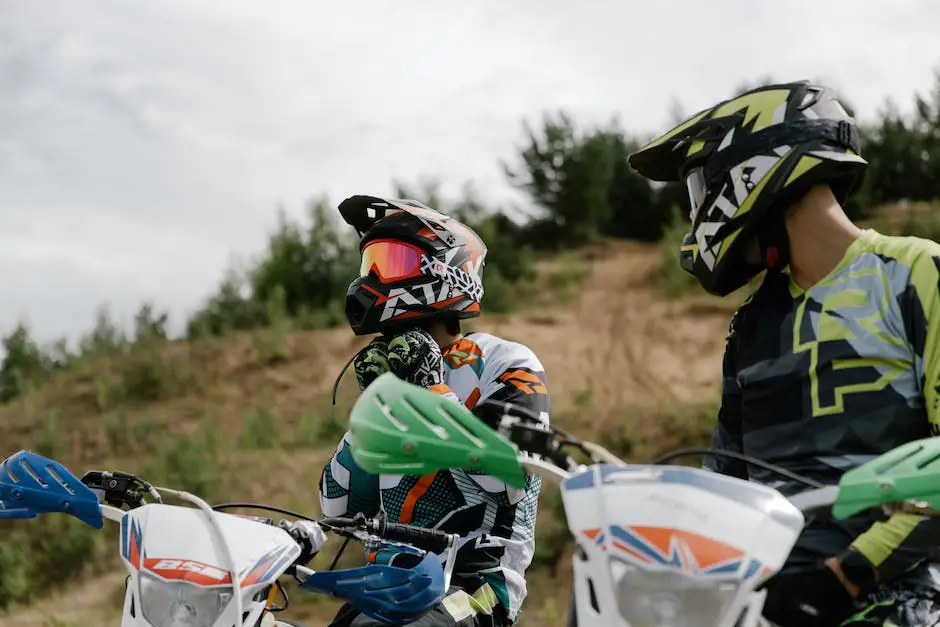
Notable Swiss Riding Schools
Diving deeper into Switzerland’s storied equestrian life, there emerges a stunning lineup of distinguished equestrian schools that further strengthen the country’s foothold in the global horse riding sphere. Keeping in mind the wide-ranging topics previously covered, this article shifts the spotlight upon some of the country’s top equestrian institutions that have shaped champions, cultivated skills, and scaled up equestrianism in this part of the globe.
High on the list, the International School of Riding in Lausanne stands as one of Europe’s premier professional riding schools. Renowned for its expansive curriculum that covers horse anatomy through to stable management, there’s a strong emphasis on mutual respect between horse and rider. With remarkable success records in training riders for national and international equestrian events, this institution has etched its name in the annals of global pro-riding.
Peering into the quaint town of Cheseaux, the Ecole d’Equitation de Cheseaux is well-regarded for its unique approach to horse riding. The meticulous teaching methodology here factors in horse care and diet, stable management, and equestrian safety at its core. Its systematic progression approach ensures a personalized training experience for each student while capturing the essence and elegance of horse riding in its entirety.
Not to be overlooked is the famed Ecole Professionnelle Pour Cavalier of Zurich. This school builds on the foundational aspects of the equestrian tradition in an urban setting. Practical lessons offer deep dives into dressage, jumping, and cross-country styles, encouraging versatility and functionality. A highlight of the institution is the emphasis it places on developing a robust and healthy horse-rider relationship, further fostering equestrian communication.
Stepping into the panorama of the Swiss Alps, the Swiss Reitschule in Appenzellerland adds another dimension to equestrian learning. With individual projects and time allocated for horse grooming, students here learn the intricacies of communicating, feeding, and understanding their horses. Of note is the institution’s focus on responsible riding and environmental consciousness which syncs beautifully with the enchanting Swiss surroundings.
Finally, the splendor of Niederteufen hosts the Institut Le Rosey, an equestrian school internationally celebrated for championing competitive riding programs. Here, the passion for equestrianism pervades the air, building a cohesive unit of horse-riding lovers who value the amalgamation of elegance, freedom, and communication that defines this sport.
Many schools may straddle Switzerland’s picturesque landscape, but these standouts ensure that the country’s equestrian tradition continues to gallop full stride into the future. This, while preserving the Swiss culture uniquely intertwined with horse-riding, from rural charm to urban sophistication, highlighting the unbroken bond between Swiss life and its beloved horses. It is through these institutions that Switzerland’s equestrian lineage not only marches on but leaps towards unprecedented heights in the global equestrian arena.
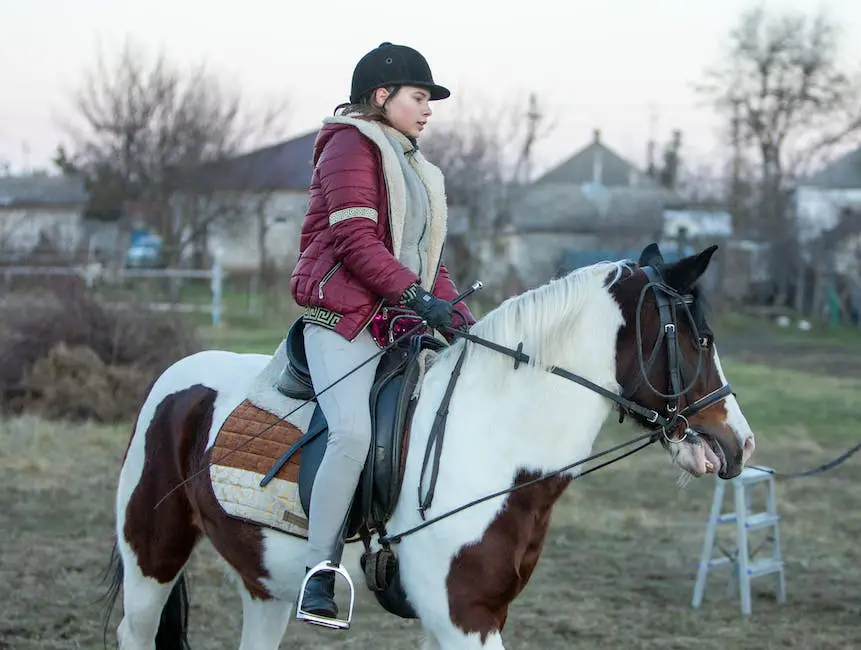
Life at a Swiss Equestrian School
It’s time to step behind the stable doors and take a peek into the everyday proceedings in Swiss equestrian schools. In these esteemed institutions, a day typically begins with students feeding, grooming, and preparing their horses for the day’s lessons. It’s not just about mastering the art of horse riding, it’s about fostering a deep bond between rider and horse. This connection is as vital as any riding technique a student will learn.
Each day presents a blend of theoretical and hands-on practical sessions. A classroom lecture might explore the intricate anatomy of a horse one day and delve into the concept of equestrian safety the next. One may also expect instruction on horse care and diet, as well as the fundamental principles of stable management. Here, academic learning and field knowledge combine, equipping students with a holistic understanding of horses and equestrian life.
Part of the day is spent in the arena, where the real hands-on learning comes to life. Here, students test their equestrian skills, learning the nuances of various riding styles, from dressage and jumping to cross-country. These practical lessons are carried out under expert supervision, ensuring that the students’ techniques improve, and their bond with their equine partners strengthens.
The highlight of a Swiss equestrian school experience is undoubtedly the competitive riding programs. These programs arm students with the skills to compete in national and international equestrian events. Training in these programs often involves rigorous regimens designed to build a cohesive unit between horse and rider, both in spirit and performance.
Further punctuating the daily schedule are the individual project sessions. These serve as an opportunity for students to spend quality time with their assigned horses. It’s during these moments, often in the quietude of the stable, that the bonds of trust and respect between rider and horse are strengthened. These experiences foster not only better riders but also compassionate equine caretakers.
Lastl a distinctive feature of these Swiss equestrian schools is their emphasis on responsible riding. Respect for the natural environment is promoted, encouraging students to appreciate their surroundings and understand the role it plays in horse life. These lessons tend to be interwoven throughout the day – a constant, gentle reminder that while horse riding is a skill to be honed, it should never come at the expense of nature and wildlife.
From the picturesque vistas of the International School of Riding in Lausanne and Swiss Reitschule in Appenzellerland, to the bustling equestrian hubs of Ecole d’Equitation de Cheseaux and Ecole Professionnelle Pour Cavalier of Zurich, the experience at Swiss equestrian schools offers a comprehensive plunge into the world of equestrianism. The daily routine at these schools combines horse care, theoretical learning, practical riding skills, and environmental education to mold well-rounded equestrians. The journey from being a novice to a skilled horse rider in Switzerland is steeped in respect: for the horses, for the tradition, and for the land that provides the perfect backdrop for this well-loved pursuit.
Whether you are a child besotted with horses, a teenager eager to competently saddle up, or an adult looking for an immersive hobby or career path, Swiss equestrian schools provide an invigorating portal to the captivating world of horses. It’s not just about riding; it’s about learning life lessons of dedication, commitment, respect, and love. So saddle up and get ready for a journey of a lifetime.
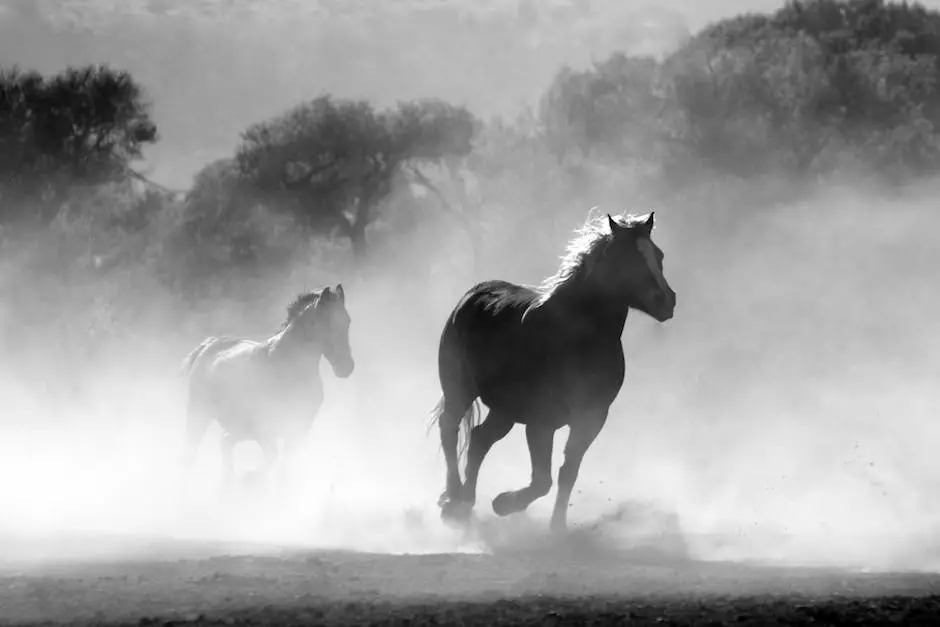
Swiss Equestrian School Success Stories
Diving right into the heart of Swiss equestrian triumph, a remarkable list of individuals swim to the surface, having honed their skills and expertise through the rigors of Swiss equestrian education.
One of the most notable alumni of Swiss Equestrian Schools is Steve Guerdat. Having graduated from the renowned International School of Riding in Lausanne, this Swiss show jumper is a testament to the quality of Swiss equestrian education. Guerdat, who has often quoted the training’s profound emphasis on cultivating a deep bond between the rider and horse, has won multiple championships, including an Olympic gold medal in 2012.
Following closely is Janika Sprunger, another beacon of success. Graduated from the Ecole Professionnelle Pour Cavalier in Zurich, Sprunger disclosed that her school emphasized the importance of horse care, understanding horse anatomy, and teaching practical horse-riding skills. These fundamentals were instilled into her learning, forming her into an international show jumping champion.
Coming from another esteemed institution, the Swiss Reitschule in Appenzellerland, is Martin Fuchs. Fuchs attributes his deep understanding of horse riding etiquette, safety, and building a strong relationship with his horse to the meticulous training program at this school. Today, he proudly boasts as one of the world’s top show jumpers, with many accolades to his name, including a World Equestrian Games silver medal.
Another swiss equestrian prodigy, Christina Liebherr graduated from the Ecole d’Equitation de Cheseaux in Cheseaux. Liebherr is particularly vocal about her appreciation for the school’s unique training approach of maintaining a balance between horse care, theory, practical skills, and respect for the environment. The result? She is a multiple European Championship medalist and an Olympic bronze medalist to boot.
Last but not least, the Institut Le Rosey in Niederteufen boasts the successful journey of Pius Schwizer. Schwizer, an Olympic show jumper, has often praised the systematic progression approach, with the curriculum structured to ensure proficiency at each level, that he received during his schooling. This strategy provided the strong foundation needed for Schwizer to realize his talent and push his expertise to an elite international level.
What we learn from these stories is more than just the success and glory that each of these individuals has achieved. It is about the essence of the Swiss equestrian tradition, the dedication and commitment it demands, the respect and love it instills for the noble companions that are horses, and the aura of freedom and elegance it manifests. The Swiss equestrian schools serve as launching pads for great equestrian careers. In creating riders who excel beyond horse riding into becoming compassionate caregivers, dedicated trainers, and, ultimately, true equestrian spirits embodying the Swiss equestrian tradition, they exhibit the beauty and core of this age-old tradition to the world.
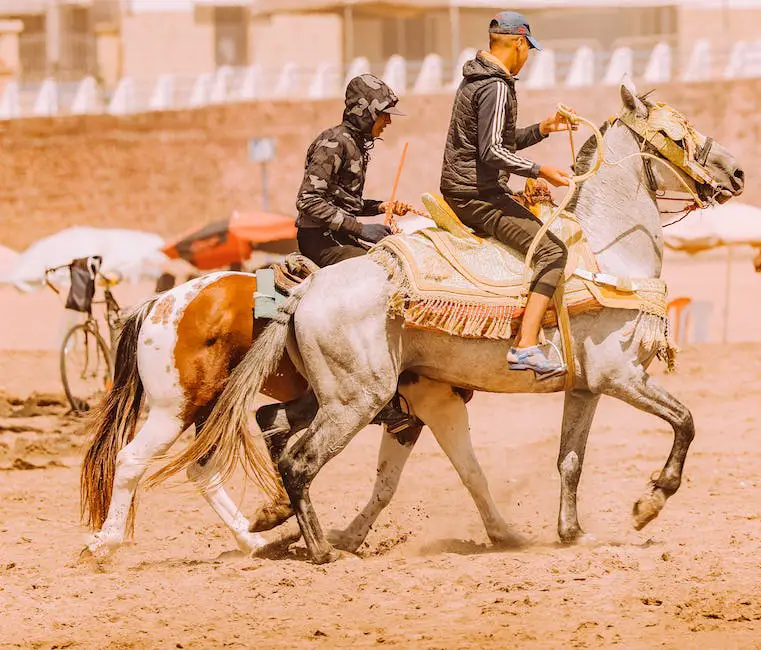
As we journey back from the immersive experience of Swiss equestrian schools, we acknowledge the remarkable significance of this tradition. Through the trials and triumphs of students, the rigorous practical and theoretical, education curriculum, and the revered institutions that stand testament to equestrian excellence, we gain deep insights into the Swiss equestrian scene. Success stories from these schools serve as a beacon of inspiration, highlighting the potential for achievement that lies within the grounds of these prestigious institutions. The memorable experiences and invaluable lessons derived from Swiss equestrian schools truly embody the essence of equestrian passion, skill, and resilience, illuminating the continued significance of this worthy Swiss tradition.
